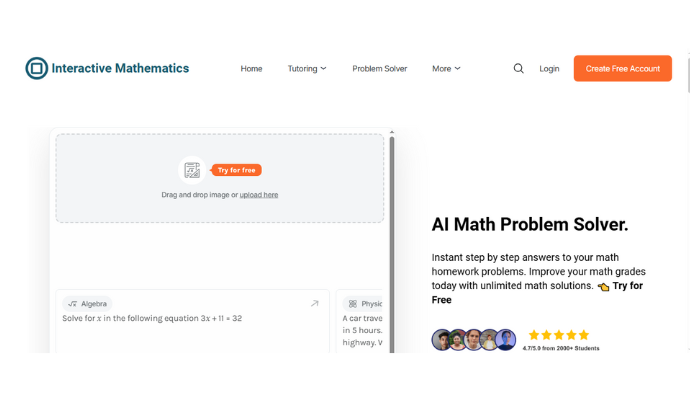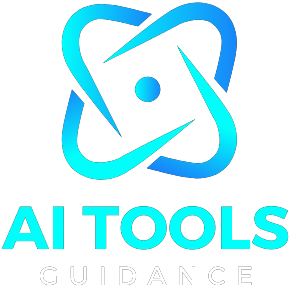In today’s fast-paced digital landscape, Interactive Mathematics transforms students’ understanding and application of mathematical topics. By combining technology, particularly Solucionadores matemáticos de IA, with traditional math instruction, students can now access real-time and engaging solutions to answer challenging problems. In this blog post, let’s examine how interactive mathematics resources influence contemporary teaching.

What Is https://www.intmath.com/Interactive Mathematics and Why Is It Important?
Interactive Mathematics combines the traditional teaching approach with technology and real-time engagement strategies. Interactivity improves comprehension, retention, and problem-solving at any age, making it useful for everyone.
1. Enhances Student Engagement
The incorporation of AI in teaching transforms traditional math lessons. Students can visualize concepts like never before with interactive visuals, step-by-step instructional vídeos, simulations, and dynamic graphs capturing their attention, resulting in improved engagement and interest.
2. Encourages Conceptual Understanding
Unlike traditional rote learning, Interactive Mathematics focuses on building deeper, more profound, foundational understanding. Students are guided on why a formula works and not only on how to apply it.
3. Promotes Active Learning
Interactive pedagogy encourages active participation as students use real-time feedback tools to correct and optimize their solutions to the equations they are solving. This active participation enhances the retention of learned skills.
How Math AI Solvers Are Revolutionizing Problem-Solving
Math AI solvers are at the heart of Interactive Mathematics tools, changing how learners approach and resolve mathematical problems.
1. Instant Step-by-Step Explanations
AI math solvers provide elucidations for every single step, which is not different from traditional calculators. This promotes self-learning as students grasp the reasoning behind each answer provided.
2. Adaptive Learning Algorithms
AI solvers incorporate algorithms to analyze students’ pace and adjust subsequent questions. As a result, students enjoy better learning outcomes because their learning experience meets their unique needs.
3. Wide Range of Problem Types
These solvers cater to all, from basic addition and subtraction to college-level calculus and everything in between. Their coverage of topics is suitable for all learners, whether in primary school or college.
Top Features of the Best Math AI Solvers for Students
The best Math AI solvers rely on sharper strategies than basic computation features to stand out. Here are crucial features to look out for.
1. Multi-Functionality Across Topics
The most effective solvers deal with algebra, trigonometry, calculus, and statistics from a single platform.
2. OCR and Handwriting Recognition
Some technology nowadays allows students to take pictures of their handwritten work. AI can read and solve them correctly, which is very useful for homework or study sessions.
3. Voice Input and Natural Language Support
More advanced solvers respond to verbal commands and statements of math-related questions, making input for problems more convenient for learners.
4. Interactive Graphing Tools
Interactive Top solvers come with graphing calculators. These tools let students change equations and see the real-time graphical adjustments.
Read Also: Generative AI vs Predictive AI: Key Differences and Use Cases
https://www.intmath.com/Interactive Mathematics vs. Traditional Learning Methods
Let’s examine the aspects in which Interactive Mathematics outshines traditional teaching techniques.
1. Real-Time Feedback vs. Delayed Corrections
In traditional learning, immediate feedback is difficult to come by, as students wait for papers to be graded to receive corrections. On the other hand, interactive platforms offer instantaneous feedback, making it very easy for students to learn from their mistakes in real time.
2. Personalized Learning Paths vs. One-Size-Fits-All
AI-powered platforms change the level of difficulty and hints offered, unlike classroom approaches, which are meant for students with mixed abilities.
3. Visual Engagement vs. Textbook Learning
Interactive tools for teaching math feature animations, graphs, and even simulations— far more interesting than textbook instructions.
4. Anytime Access vs. Fixed Classroom Hours
With Interactive Mathematics tools, learners can access materials anytime and anywhere without the constraints posed by class schedules.
5. Motivational Gamification vs. Passive Learning
Some tools utilize gaming elements to maintain the motivation level, such as passive note-taking, which stands in stark contrast to what traditional methods have to offer.
Choosing the Right Math AI Solver for Your Learning Style
With Interactive Mathematics, roaches, and strategies can be used to cater to each learner’s learning style and time fand time for mastery of math skillss.
1. Assess Your Preferred Learning Format
Are you more inclined to understand concepts better when they are illustrated, explained, or demonstrated? Choose a solver that fits, for example, one that provides graphs, narration, or practice features.
2. Check for Curriculum Compatibility
Ensure the tool is appropriate for your educational level and curriculum (from elementary math to college calculus).
3. Evaluate Accessibility and Platform Support
The ideal tool makes learning seamless and uninterrupted across mobile, tablet, desktop, or any other device while remaining available 24/7.
Compruébalo: MathCrave
Final Words
Interactive Mathematics is more than a pedagogical fad; it is a revolution in personalized, engaging, and effective math teaching. Students are empowered like never before with intelligent Math AI solvers to tackle problems and concepts, and enjoy the journey independently. Everyone can improve math abilities and build skills for life by choosing the appropriate tool based on features, learning styles, and needs. Start exploring the realm of Interactive Mathematics and transform how you handle figures today.










